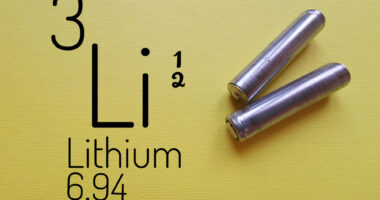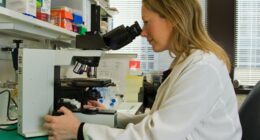If small tech companies of almost any stripe are going to bring their product from the lab to the mass market, they will almost inevitably need help along the way. It could come in the form of funding, or technical expertise, or marketing advice, or any number of other forms of assistance, but at key points of development some form of outside help will often propel a successful company forward.
This is especially true for a company looking to transform a massive global market with its technology. In this case, Aduro Clean Technologies, Inc. (CSE: ACT) (OTCQB: ACTHF) (FSE: 9D50) is a ~$105 million dollar company that has developed a patented plastic recycling system with the potential to fundamentally change the way plastics are treated around the world.
Aduro’s innovative platform is called Hydrochemolytic™ Technology (HCT), a water-based chemical processing system capable of transforming a wide variety of waste plastics into high value compounds that can then be used to make fuel or more plastics. The company has been demonstrating HCT to potential multinational clients through its precommercial Customer Engagement Program for a couple of years. Using that program as a springboard, Aduro is planning to start construction of its pilot facility by the end of 2024.
Major Energy, Petrochemical Companies Interested
To this point, Aduro has engaged at least six different large companies in the testing process, taking a variety of feedstock from the potential customers through the HCT system to produce the desired end products. The companies prefer to remain anonymous in these early stages, but we do know the identity of two of them.
The first is Shell, the world’s second largest investor-owned oil and gas company. Shell selected Aduro for participation in the Shell GameChanger program. The program is designed to speed the participant’s path to commercialization through collaboration and investment.
Shell talks about its commitment to a circular economy for plastics on its website, focused on chemical recycling. Shell is responding to our customers’ demands for more chemical products with less virgin-hydrocarbons. We are developing and investing, with industry partners, in chemical recycling. Using a special heating process called pyrolysis, it transforms hard-to-recycle plastic waste, which would otherwise be incinerated or go to landfill, into a liquid feedstock, known as pyrolysis oil. Pyrolysis oil can be used to produce chemicals, plastics and other products supporting a circular economy. We believe chemical recycling has potential as a valuable and viable solution in tackling plastic waste, but to grow this industry will require collaboration with governments, waste management companies and customers.
Aduro’s participation in the Shell GameChanger Program should be nearing the end, if it’s not already there. We don’t know if it will result in a deeper partnership at this point. But we do know that Aduro is benefiting from its relationship with Shell, and that collaborations like this are very important to both companies as they seek to perfect solutions for the world’s plastic waste problem.
A Quick Plastic Recycling Explainer
The most common way to recycle plastic is to physically break it down into smaller pieces, but this mechanical technique got us where we are today – unable to recycle the vast majority of plastic waste due to economies of scale, impurities in the feedstock, high costs, and other limitations.
Pyrolysis is the most common form of chemical (or advanced) recycling. It involves the application of high heat to plastics to create synthetic crude oils. Current pyrolysis technologies are energy- and emissions-intensive, calling into question the utility of the technology when one of the goals of plastic recycling is to reduce emissions and energy consumption. Pyrolysis also suffers many of the same limitations as mechanical recycling, which is the original way that plastics have been recycled.
Problems with Current Technologies
- Expensive sorting and washing required
- Can only process one type of plastic at a time
- Prohibitive CAPEX and OPEX
- Intensive energy use
- High carbon emissions
- Rely on centralized, high volume locations
- Require harmful chemical additives for processing
Aduro has answers for all of these problems.
Solutions from Aduro’s Water-Based HCT Platform
- Minimal sorting and washing required
- Works with almost all plastic types in one process
- Significantly lower CAPEX and OPEX than existing systems
- Operates at lower temperatures, resulting in less energy use
- Lower carbon emissions
- Highly scalable, small or large
- Uses cellulose, ethanol, and glycerol as chemical agents
Back to the Collaborations
The second of Aduro’s multinational collaborators is TotalEnergies, the France-based global energy conglomerate with operations in nearly 120 countries. TotalEnergies is one of the world’s largest producers of plastic polymers, including polyethylene, polypropylene, and polystyrene. Though HCT can handle other types of plastics as well, those three are by far the most common types of plastics found in municipal waste and can all be processed by Aduro’s technology.
TotalEnergies is highly committed to creating a circular economy for plastic. The company recently announced the conversion of plastic waste into circular polymers at its La Porte, Texas polypropylene facility, in a joint venture with BASF and New Hope Energy. The process used involves pyrolysis, and TotalEnergies has set a goal of making one million tons of circular polymers per year by 2030.
The success in Texas has not stopped TotalEnergies from publicly furthering its relationship with Aduro. The two companies recently advanced from the Customer Engagement Program to a research and development collaboration.
From the press release: This phase will focus on a more diverse range of waste plastic materials, particularly those with higher concentrations of polyolefins, polyurethane, metals, and other challenging contaminants. The project aims to establish process parameters to manage these variable and hard-to-recycle feedstocks, optimize the process design and operating conditions, and lay the groundwork for a commercial process. Aduro’s innovation is centered on deconstructing these materials into high-value feedstocks suitable for the chemical industry.
TotalEnergies will provide both financial and in-kind support, including access to technical resources.
This relationship sounds similar in spirit to the Shell program. And it’s interesting to note that Aduro does not see pyrolysis as a competing technology, but rather one that could benefit from the addition of HCT in the same facility. With HCT’s ability to process a wider range of plastic than pyrolysis, and with potentially less sorting/washing required, a company could use Aduro’s system to broaden its operations at facilities that are currently committed to only one type of plastic.
The Near Future of Aduro
Since the July 23 announcement of its intention to IPO its shares on the NYSE, Aduro’s stock price has risen about 35%. Still, the company may be undervalued considering the ~$105 million market cap. It’s a big jump from the Canadian Stock Exchange up to the NYSE, but the potential of the technology to transform a very large industry like plastics justifies the ambitious plan. Aduro’s collaborations with some of the world’s largest petrochemical companies are further confirmation of HCT’s viability.
This year, the company’s goals include moving potential customers to the collaboration stage. The TotalEnergies announcement checked that box, and there may be more to come. Aduro is also focused on starting construction of its Next Generation Process facility, intended to be a small commercial scale pilot that will set the stage for full commercialization of the HCT platform. The company also seeks to expand its intellectual property portfolio to further enhance value.
It remains to be seen how quickly the IPO proceeds, but suffice to say there is much more to come from Aduro Clean Technologies as it ramps commercialization efforts and grows its public profile.










